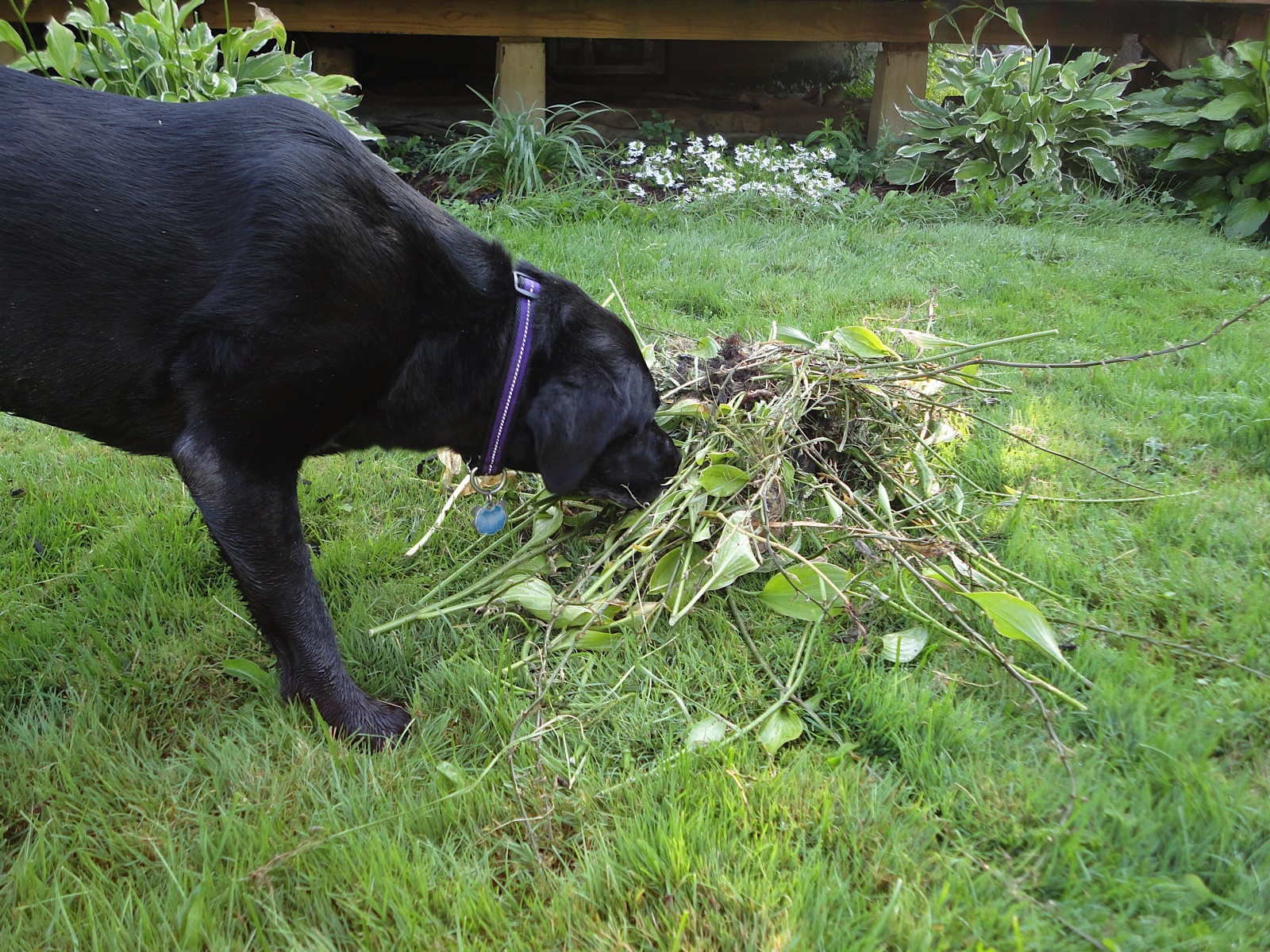About This Project
Canines are considered the gold standard in scent detection work, but can one be trained to find frog-cicles? Yes, frogs that freeze to survive winter! Little research exists on the winter ecology of wood frogs due to the difficulty of locating hibernating individuals. We propose using a detection canine, which is a non-invasive technique, to locate post-breeding adults in the wild, and eventually, frog-cicles. Join us on our exciting journey!Ask the Scientists
Join The DiscussionWhat is the context of this research?
This is a great video clip (less than two minutes) with Patrick McMillan explaining the wonders of the wood frog, including the frozen and thawing stages.
http://youtu.be/UvCdOXG2rPo
And this link take you to a National Geographic article, "Anti-freeze-like Blood Lets Frogs Freeze and Thaw With Winter's Whims."
http://news.nationalgeographic.com/news/2007/02/070220-frog-antifreeze.html
What is the significance of this project?
Over the last 50 years, many species of amphibians world-wide have declined in numbers, and some have become extinct. For proactive amphibian conservation to be effective, we must fully understand their life-cycle needs and responses to changing environmental conditions. In the Northern portion of their range, wood frogs (Lithobates sylvaticus) survive by freezing solid! However, little research exists on the winter ecology of the wood frog due to the inherent difficulty of locating hibernating individuals. We propose using a detection canine, which is a non-invasive technique, to locate post-breeding adults in the wild, and eventually, to locate hibernating adults. Based upon a substantial literature review, no one has tried this approach, which makes this a unique research project.
What are the goals of the project?
Goal 1: Successfully imprint and train one wildlife detection canine to search for and detect post-breeding wood frogs in the wild.
Goal 2: Determine if different species of frogs using the same habitat have similar or different scent, which would effect canine detection accuracy.
Goal 3: Complete an undergraduate research project to determine if pheromones play a role in canine imprinting and detection of adult wood frogs.
Goal 4: Determine if canines imprinted on post-breeding adult wood frogs will also successfully locate hibernating individuals.
Budget
My faculty appointment with Department of Wildlife, Fisheries, and Conservation Biology, University of Maine, is 100% FTE, which means undergraduate teaching and advising is my primary focus, not split with research expectations. I am passionate about mentoring undergraduate research and taking students to national and regional conferences to present their research. However, since my appointment is 100% teaching, I don't have a lab or start-up funds to establish one. Additionally, recent budget cuts across the campus means undergraduate research and student stipend money are becoming harder to obtain. Thus, I am seeking alternative resources to support undergraduate research and scholarship.
Donations $50 or more will receive a beautiful t-shirt with our "Got Frog-cicles?" logo. And, of course, all donations receive a huge and heartfelt "thank-you" from the undergraduates earning hands-on field and research experience because of your generous support! Thank you and woof-woof!!
Meet the Team
Team Bio
Professionally Certified Wildlife Biologist® , Coordinator of Wildlife Ecology Undergraduate Degree Program, and Center for Undergraduate Research (CUGR) Undergraduate Research Faculty Fellow (2014 - 2015). I teach undergraduate and graduate courses in wildlife policy, human dimensions of fisheries & wildlife conservation, ecology, and wildlife field survey methods. I am developing new research in human dimensions aspects of natural resources management, as well innovative wildlife research methodologies that use detection canines as an effective non-invasive field technique. I have experience working on teams that trained canines to search for and detect Improvised Explosive Devices (IEDs) and their components. I also spent time as a Canine Trainer on Office of Naval Research (ONR) projects where I assisted with the design and implementation of research projects to assess canine physiology and conditioning, cognition and learning capacity, and odor detection abilities.Additional Information
Time-lapse video of a wood frog going through its thawing process.
Scarlet is telling us the frog is right here!
Project Backers
- 7Backers
- 15%Funded
- $406Total Donations
- $58.00Average Donation
